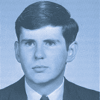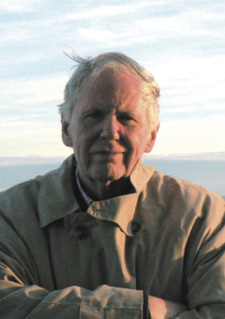Thomas Lewis Hine – 50th Reunion Essay
Thomas Lewis Hine
 2014 Naudain Street
2014 Naudain Street
Philadelphia, PA 19146
tom@thomashine.com
215-735-7670
Spouse: James Chan
Career: Architecture critic, Philadelphia Inquirer, 1973–1996. Ford Foundation fellow in the arts, 1977–78. Author of Populuxe (1986) Facing Tomorrow (1991) The Total Package (1995) The Rise and Fall of the American Teenager (1999) I Want That! (2003) The Great Funk (2007). Chief art critic Philadelphia Inquirer (2014-present)
College: Silliman
Even before I arrived at Yale, I was working as a professional journalist, a career I have pursued, more or less, all my life. I have also written half a dozen books and curated some museum exhibitions. I got a word that I made up—populuxe—into the Random House and American Heritage Dictionaries.
Writing in the New Yorker, John Updike praised my “mischievously alert sensibility,” an epitaph worthy of the gravestone I don’t think I will have. A few years ago, after nearly 20 years outside of the newspaper business, I have returned to newspapering by becoming art critic for the Philadelphia Inquirer, the publication for which I served as architecture critic for 23 years, ending in 1995.
I have lived for three decades in a house that leaks, but that I think is beautiful, with the man I recently married. Things have worked out pretty well over all.
In my first book, Populuxe, I talked about the extraordinary luck that we early boomers had to be born at the moment when we were, a time of expanded opportunity. My father died when I was a baby, before I got to know him. But I had the good fortune of growing up in Guilford, Connecticut, about 12 miles from the Yale campus. It was a beautiful town, small and serious and dedicated to public education.
As a child when we went to New Haven, to buy shoes or whatever, I used to look at the Yale campus. It looked to me like a fortress with its massive wrought iron gates, and I was very much an outsider. The only place at the university that was a little bit welcoming was the Art Gallery. Even when I showed up as a student, I felt like an outsider, a feeling that never went away in all my four years there.
In retrospect, I know that, in addition to having little money and perceiving myself as sort of a bumpkin compared with the prep school sophisticates I encountered, this sense of alienation sprang from my sexual orientation, which I didn’t even recognize at the time. I do remember, though, that when Charles Reich, in his course that became The Greening of America, spoke of the danger of having a failing that would cause you to “fall out the bottom” of society that he was talking about the secret I was hiding even from myself. (He was hiding it too.)
But I was lucky yet again. Very slowly, being gay became less of a stigma. And in 1979, I met James Chan who has been my partner ever since. We helped each other avoid the dangers lurking at the time, and have supported each other’s ambitions. So though I mourn this moment, when journalism faces economic extinction, and even trying to know the truth is considered passé, I celebrate the changes that have allowed me to live a life of dull, happy normality.

Thomas Hine
If the above is blank, no 50th reunion essay was submitted.
